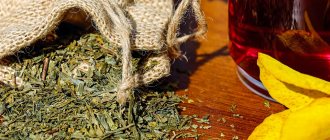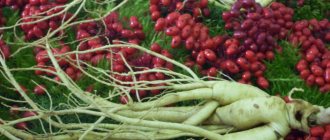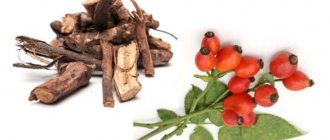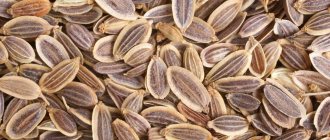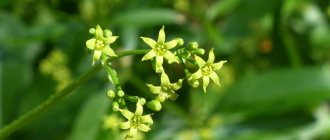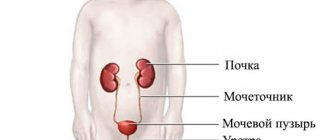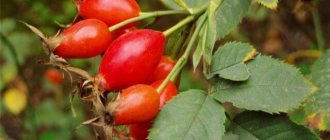Tea is an aromatic drink made by pouring boiling water over the leaves of a shrub (bush) native to East Asia. Tea is the second most consumed drink in the world after water. There are many different types of tea; some have a cool, slightly bitter taste, others include nutty, sweet, herbal or floral notes.
Monastic tea for weight loss, reviews of monastery tea for weight loss, composition, how to brew
Stomach monastery tea: composition, reviews, collection for the gastrointestinal tract
How to prepare monastery tea at home: composition, proportions, recipe
Monastic tea for parasites, antiparasitic: composition, reviews
Elena Malysheva about monastery tea
Where can you buy monastery tea? Price at the pharmacy, how much the monastery fee costs, and how to order
Monastic tea, producers and types: 16 herbs, Svyatodar, Number 8, Ivan tea, chaga, sbiten, Tiande, Ribbon, Herbs of the Caucasus, Crimean collection
Monastic kidney tea: composition of tea for kidneys
Father George's monastery tea: truth or scam? Benefits and harms
Monastic tea for diabetes, collection for high sugar
How to drink monastery tea, how to brew tea correctly. Monastic collection: instructions for use
Real reviews of monastery tea, what buyers and doctors say about the monastery tea
Monastic anti-smoking tea composition. Reviews of the monastery anti-smoking collection
Monastic tea for herpes, for fibroids, for cancer, for acne, for allergies, for osteochondrosis, for menopause, for thrush, for depression, for endometriosis, for HPV, during pregnancy, for the eyes, for prostatitis, for the gastrointestinal tract, for constipation, for psoriasis
Monastic tea for alcoholism, composition of the monastic collection for the liver
Monastic tea for the thyroid gland composition, reviews of the monastery tea for the thyroid gland
Monastic tea for the heart and blood vessels for hypertension, composition of the monastery tea for blood pressure
Monastic tea for the pancreas, for pancreatitis: composition
Monastic tea for hepatitis, collection of Father George for hepatitis
Tea originated in southwestern China during the Shang Dynasty, where it was used as a medicinal drink. The first date of tea drinking dates back to the third century AD, in a text written by Hua Tuo. Tea was popularized as a relaxation drink during China's Tang Dynasty, and tea drinking spread to other East Asian countries.
Tea was brought to Europe by merchants from Portugal in the 16th century. The British, famous for their tea traditions, began drinking tea in the 17th century, when they managed to begin producing tea on a large scale in factories in India.
Herbal tea refers to beverages made from infusions of fruits, leaves, or other parts of a plant, such as rose hips and chamomile. They are sometimes called tisans or herbal infusions to avoid confusion with tea made from the tea plant.
About Monastic tea
Monastic tea is a collection of medicinal herbs growing on the territory of the Republic of Belarus. Each collection is exceptional and treats a specific disease.
Collections of monastery teas have been known since ancient times, their recipes were strictly guarded. There is an opinion that the creation of recipes for Monastic tea belongs to the healer and herbalist of the Holy Spiritual Monastery of the Timashevsky Monastery, Archimandrite George. The sufferers of all Rus' went to George for miracle tea.
The collection included rare plants that grow near the monastery. In addition to its healing properties, the drink has a wonderful taste, it warms the soul and invigorates.
The recipe has been preserved and has come to us through the centuries thanks to the monks of the monastery, who preserved the records in the monastery library. Even a child can brew the drink: pour boiling water over a tablespoon of the mixture, leave for 5 minutes and take three times a day for one to three months.
How to take the product
From us you can buy Monastic tea at a good discount
Father George's monastic collection of 16 herbs is recommended to be taken according to a special scheme. After all, any remedy, even a folk remedy, can cause side effects if the dosage is incorrect.
Experts recommend taking the decoction up to 4 times a day, a maximum of a tablespoon. The course of treatment, regardless of the diagnosis, should be at least a month. It is allowed to take it for three months in particularly difficult cases. It is best to drink the decoction about an hour before meals. You can add lemon or a spoonful of honey to the finished drink to improve the taste.
If you use this remedy as a course, it is not advisable to use other herbal infusions simultaneously with it. In general, the dosage may be different; for each ailment, you need to consult with doctors separately.
Monastery tea for smoking
More than 40% of people on Earth are smokers. Smoking is a disease equivalent to drug addiction and it is not easy to fight. Only 4% of smokers quit smoking on their own. Others use products whose action is based on the delivery of nicotine to the body using chewing gum, anti-nicotine patches or newfangled electronic cigarettes.
Important: the harm from these drugs is almost equivalent to smoking. Anti-smoking tea has clear advantages over them: it does not contain nicotine, eliminates addiction, strengthens a person and cleanses of harmful substances formed as a result of smoking.
According to Honored Narcologist A.P. Fetisov, taking monastery tea is distinguished by consistently good results in the fight against the smoking habit. Fetisov recommends that those who want to quit smoking without pain and stress regularly drink this miraculous medicinal drink.
A smoker's lungs will be freed from harmful impurities after drinking tea for three weeks. The monastic collection acts as a complex; its components, mutually complementing each other, enhance its effect on the body. In addition, tea has a calming effect on the nerves and normalizes sleep. This is important because, having said goodbye to a bad habit, people are subject to stress and severe irritation.
The drink can relieve these unpleasant signs and sources of addiction. This is the main difference between tea and other methods that are based on creating alternatives to smoking to transport nicotine into the human blood.
So, monastery tea helps improve immunity and general condition, combat the root causes of addiction, suppress the desire to smoke, remove decay items over a three-week period of drinking tea, effectively calm the nervous system, relieve depression and anxiety. The drink is characterized by the absence of addiction and unwanted side effects and consequences.
The anti-smoking tea contains flowers of St. John's wort, linden and lungwort, leaves of coltsfoot and black elderberry, roots of comfrey and rocky rosemary.
Monastic tea for alcoholism
Alcoholism, along with drug addiction and smoking, is considered one of the main problems of our time. More than one hundred and forty million people in the world are alcoholics to varying degrees. Most likely, there are actually many more alcoholics. After all, not everyone goes to doctors.
Alcohol destroys the functioning of all human life systems. The liver suffers most of all; under the influence of ethyl alcohol, cirrhosis occurs; this disease is practically incurable, and about forty million people in the world die from cirrhosis every year.
Alcoholism destroys families and contributes to the birth of physically sick and mentally retarded children. Alcohol intoxication causes 80% of all crimes committed. Drunk drivers cause the majority of road accidents.
According to narcologist R. Yu. Evstigneev, the consumption of monastery tea by alcoholics as part of a course of therapy gives brilliant results . Evstigneev speaks of 92% of patients who managed to get rid of alcohol addiction through constant intake of monastery tea.
Does one of your relatives suffer from alcoholism, and you can’t help your loved one? Monastic tea for alcoholism can be an effective method.
There are different methods, including encoding that instills in a person fear of drinking alcoholic beverages or developing aversion to the green serpent. These methods, as a rule, do not bring the desired result, and the body is endangered.
The natural components of this collection completely heal the body: the functioning of the nervous system is normalized, accumulated harmful substances are removed from the body, and it relieves the suffering of a person who has decided to give up drinking strong drinks.
Important: the action of the herbs that make up the collection has a mutually reinforcing effect.
More than two hundred men and women suffering from alcoholism participated in studies of several research institutes in our country. All of them underwent a three-week treatment with a tea drink for alcoholism.
All subjects showed a clear line of recovery. They got rid of the craving for drug use, the nervous system calmed down, and the anxious state disappeared. There are significantly fewer harmful impurities in the blood. However, no side effects were observed.
All this allows us to conclude that tea has a positive effect on an abusing person. Thus, monastery tea can be recommended for alcoholics to get rid of a bad habit.
The composition of tea for alcoholism includes St. John's wort, clover, peppermint, thyme, lovage, yarrow, bay leaf, Leuzea roots, juniper fruits.
Order “Monastery collection of Father George”
To receive this product, you need to fill out the appropriate form on the official resource and wait for the operator to call. Here you can check the current price and find out more detailed information about the collection. When ordering a collection on the official website, clients receive the following benefits:
- free delivery to any region or country;
- discount when ordering several collection packages;
- cashback – 10% of the order value.
Buyers will also be sent documents confirming that the harvest is approved for sale: Rospotrebnadzor conclusion, quality certificates, customs declarations.
Note! The company employs full-time general practitioners who provide free consultations to all clients. And you are not obligated to make a purchase. If you want to ask your doctor questions about your health, treatment methods, and the effectiveness of herbal remedies, then simply fill out the application form on the manufacturer’s website.
How to get a free consultation or place an order?
- Go to the manufacturer's website.
- Carefully read the information about collection, methods of use, and benefits.
- Enter your name and phone number on the application form.
- Wait for the doctor to call and ask him any questions and get advice.
- If you decide to order a collection, ask to transfer the call to the manager.
- Tell the specialist the number of packages and delivery address.
The collection will be delivered within 2-9 days by mail or courier. Payment is made upon receipt.
Monastic tea for diabetes
For a long time, Rus' has been famous for its folk remedies designed to maintain and restore health. Not all recipes have survived to this day, but those that have survived are very highly valued. After all, the effectiveness of these products has been tested for centuries, and they contain only natural ingredients. Monastic tea can easily be classified as one of these remedies.
4% of the world's population has diabetes. This disease is caused by disorders in the pancreas and is very dangerous due to deterioration of blood and blood vessels, weakening of visual acuity and can lead to amputation of limbs. A weakened body is not able to resist viruses and infections.
According to official data, two and a half million people in the Russian Federation have diabetes. In reality, the number of such patients is many times higher. People who do not take care of their health may not even realize that they are sick.
According to endocrinologist, candidate of medical sciences Evgeniy Spiridonovich Osipov, diabetes can be treated with the help of folk remedies, and monastery tea can safely be considered one of them . Tea is also used to prevent illness. 80% of people who drink monastery tea experience improvement.
Monastic tea is an easy-to-use method of treating a diseased pancreas and diabetes; it does not give side effects and makes the whole person healthier. Compared to the medications traditionally prescribed for these diseases, which fight the consequences of the disease, the monastic collection eliminates their causes.
The most common cause of diabetes is carbohydrate metabolism disorders. Monastic tea helps normalize metabolism and eliminates the cause of the disease. Tea lowers glucose, helping to get rid of medications containing insulin. If it is impossible to completely give up insulin, the monastic collection improves the penetration of insulin into the body tissues.
In addition, tea helps strengthen the immune system, reduces weight and increases appetite . In particular, monastery tea is indicated for low-calorie diets.
When using tea, immunity improves, metabolism is normalized, degeneration of pancreatic cells is prevented and its functions are restored, and a significant improvement in overall well-being is noted.
The composition of the monastery tea for diabetes includes black elderberry, hawthorn, common bean pods, flax, St. John's wort, rose hips, plantain, clover and peppermint.
“Father George’s Monastic Gathering” – a scam or not?
Like any medicine, this collection has negative reviews. Someone turned out to be allergic to certain components, someone purchased a fake collection, so it turned out to be ineffective, someone tried to cure complex diseases, although the collection was not intended for this. The company's representatives value the opinion of each client, so they always respond to comments and try to help the client solve the problem.
There is no point in buying this fee. Zero effect. I bought it for the treatment of gastritis, but after examination by a doctor it became clear that the disease had not disappeared.
Manufacturer's response:
The monastic collection does not give a 100% result in the treatment of gastritis. This disease requires an integrated approach, in which it is necessary not only to take medications, but also to follow the prescribed diet. It is not known what exactly in your case provoked the exacerbation of gastritis.
I have diabetes and I have weight problems. All the manufacturer's statements about the effectiveness of the collection are deception.
Manufacturer's response:
Diabetes mellitus is a systemic disease, the causes of which are difficult to accurately determine. This pathology cannot be completely cured using modern methods. The monastic collection is used for diabetes mellitus to strengthen the body and prevent the development of complications. The remedy, like medicine, is not able to save people from the disease.
Monastic tea for menopause
Vital tone and metabolism decrease by the half-century anniversary, so general health deteriorates after fifty.
In women, reproductive function also fades; gynecologists call this menopause. Now, thanks to many medications and folk remedies, this process is much more painless, but it cannot go completely unnoticed. Menopause affects every woman's health to varying degrees.
Symptoms of menopause include the following: surges in blood pressure (either hot or cold), changes in hormonal levels (mood swings, irritation and tearfulness), sleep disturbances (losing the nervous system, absent-mindedness, decreased performance), muscle and head pain. (trembling in the legs and arms, convulsions, migraines), disruption of the rhythm of life (excess weight), disturbance of the menstrual cycle (frequency, duration).
If you experience at least two or three of the listed symptoms, you are experiencing menopause. Timely assistance to the body will help avoid depression and chronic diseases.
Experts recommend drinking monastery tea for menopause during menopause, which was created by nuns back in the 18th century.
Vows of celibacy, childlessness and abstinence did not cancel the biological cycles of nuns. They also suffered during this difficult period. Monastic tea for menopause is an infusion that has been tested for many years on nuns and laywomen; even royalty did not hesitate to use it.
Nowadays, the recipe for tea for menopause from 9 herbs has found a rebirth. It is designed to help women cope with menopause easier and more effectively. The drug was tested on one hundred women at the beginning of menopause, 97 of whom, using tea, felt relief: improvement in general condition, skin, hair, increased mood and performance, normalization of sleep.
According to homeopathic doctor Li Hao Jiushi, who, along with Chinese herbal teas, successfully uses monastery tea for menopause, he manages to achieve effective normalization of the metabolic processes of his patients. Women drink tea with pleasure and become more cheerful.
The composition of the monastery tea for menopause includes cinnamon rose hips, angustifolia fireweed, thyme, oregano, hawthorn, motherwort, calendula petals, medicinal sage, stevia.
Important! Taking tea for menopause will not stop menopause, this is the so-called point of no return, but it will relieve unpleasant symptoms.
Follow the dosage of this intensive remedy strictly so as not to harm your weakened body.
“Father George’s Collection” 16 herbs – reviews from doctors
I asked my colleague, an oncologist, what she thought about the action of the collection. That's what she said.
This collection is one of the remedies that I recommend to my patients for tumors. The infusion really strengthens the body and effectively prevents the development of complications typical of oncology. The herbal mixture, when taken regularly, helps patients suffering from constant pain. Anna Pavlovna Streltsova, oncologist, 13 years of work experience, Omsk
Monastic antiparasitic tea
The topic of problems with parasites is somewhat sensitive, but very relevant. 80% of the world's inhabitants are carriers of various types of parasites. Moreover, many people do not even suspect that pathogenic organisms lead an active life inside their numerous organs, destroying cells, disrupting vital processes and causing diseases, sometimes deadly.
A person can treat some ailment for a long time, not suspecting that the problem of poor health lies in the presence of parasites in his body. Getting infected with parasites is many times easier than getting rid of them. More than 18 million people, most of them children, die from parasites.
Meanwhile, absolutely natural remedies, which include monastic anti-parasitic tea, have proven themselves well in the fight against parasites. Its mixture consists of a complex of herbs. The course of treatment will be 2 months, which can be carried out at home on your own. This time is enough to destroy all known types of parasites and restore immunity.
The tea has a pleasant taste and does not require a doctor's prescription. Monastic antiparasitic tea cleanses the body of parasites and their metabolic products, restores the activity of the gastrointestinal tract, relieves inflammation and reverses the processes of intoxication and tissue regeneration.
The results of independent tests are amazing: tests of 98% of infected people show complete cleansing of the body.
The composition of the monastery antiparasitic tea includes peppermint, oak bark, tansy, wormwood, young birch leaves, cudweed, yarrow, and calendula.
Father George's tea 100 g
There is such a monastery, the Holy Spirit Timashevsky, in Kuban in the Krasnodar region. One gifted herbalist, Father George, lived there. And people spoke of him as a good healer. Many people from distant villages came to him with their ailments. For many years, Father George studied plants growing in the foothills of the Caucasus, their properties and effects on the human body. Having compared his knowledge with ancient monastic recipes, he created a collection that is now known not only in Russia, but throughout the world.
The composition of the collection is a real herb. It contains 16 medicinal herbs. These are sage, cat's paw, nettle, string, rose hips, linden, motherwort, chamomile, immortelle, dried grass, bearberry, yarrow, thyme, wormwood, birch buds, buckthorn. Each of these herbs has its own healing properties, and in combination they are capable of miracles.
1. Nettle.
Helps cleanse the body of toxins, activate hematopoiesis, increase hemoglobin levels, and stimulate metabolism. Has anti-inflammatory properties.
2. Sage.
Plant antibiotic. Contains useful microelements (chrome, zinc, manganese, nickel, magnesium, etc.). Helps normalize the gastrointestinal tract, improve cardiac activity, and strengthen blood vessels.
3. Rosehip.
Immunomodulator. Strengthens the body's defenses. Contains a large amount of vitamins and microelements necessary for the human body.
4. Immortelle.
Has a powerful choleretic effect. Helps reduce blood cholesterol levels and smooth out the toxicity of chemotherapy.
5. Series.
Regulates the processes of hematopoiesis, coagulation, and inhibits the growth of tumors. Helps stimulate the activity of the adrenal glands.
6. Bearberry.
Contains antioxidants and flavonoids that resist the development of mutated cells and inhibit the development of cancerous tumors.
7. Yarrow.
It has a powerful anti-inflammatory effect, can enhance choleretic processes, and produce a restorative effect.
8. Wormwood.
Enhances the effect of immortelle, stimulates the gastrointestinal tract, has a powerful anti-inflammatory, antimicrobial and analgesic effect.
9. Birch buds.
They have the ability to inhibit the proliferation of cancer cells and increase the body's resistance to cancer tumors.
10. Thyme.
Strong antiseptic. Relieves inflammation. Inhibits the development of tumors.
It is one of the few herbs to which modern microbes cannot develop resistance.
11. Buckthorn.
It contains a large amount of iodine. Affects the synthesis of thyroid hormones. Helps improve the absorption of calcium and phosphorus, renewal of plasma and blood cells.
12. Linden flowers.
A useful element of linden is copper; it is involved in the processes of hematopoiesis, the production of pituitary hormones and insulin. Improves cellular metabolism.
13. Motherwort.
Acts as an analgesic for renal colic, calms the central nervous system, lowers blood pressure, and inhibits the development of tumors.
14. Chamomile.
Helps strengthen immunity. Helps with allergic reactions, delays the development of cancer, and contains a large number of useful microelements.
15. Marsh dry grass.
Helps inhibit the growth of cancerous tumors, restore blood circulation, and reduce blood pressure. Helps cope with weakness, promotes the construction of kidney cells.
16. Dried flower (Cat's paw).
Prevents spasms of blood vessels and intestinal muscles, helps suppress the growth of harmful microorganisms and cancer cells. Has a positive effect on the cardiac system and gastrointestinal tract.
When preparing this collection, our herbalists strictly adhered to the original recipe. Only herbs from Father George's original recipe were used. Correct proportions were observed when mixing herbs. All this determined a wide range of its positive effects on the body.
The creator of this healing herbal mixture has long been dead. But his work continues. The ancient recipe of Father George helps people cope with many diseases to this day.
Monastic cordial tea
Treating cardiovascular diseases is very expensive. To prolong your heart health for many years, use natural medicinal monastery heart tea. It was created according to ancient recipes, is absolutely safe and has no analogues.
Monastic heart tea will help prevent pain in the chest and forget about heart disease forever; its components help stabilize the nutrition of the heart, saturate it with oxygen, and restore the heart rhythm. Heart tea primarily fights the causes of illness.
After taking the tea for three weeks, patients feel better. Like other monastery teas, heart tea has a synergistic effect: enhancing the effects of herbs.
Interesting: patients feel positive dynamics: pain relief, normalization of blood pressure, calmness after several doses. Negative emotions disappear against the background of stress and depression, which weaken the heart muscle.
All natural ingredients of the drink grow in ecologically clean areas and are collected by hand. Drying and grinding using special technologies preserves all its extraordinary properties.
According to cardiologist, Professor V.D. Vasiliev, the advantage of monastery heart tea over other drugs is its 100% natural ingredients. Not only does tea have no side effects, but it can also serve as a preventative for many other diseases. Many cardiologists practice treating patients with monastery heart tea.
It is also worth drinking heart tea to prevent heart attacks, tachycardia, atherosclerosis, angina pectoris, coronary artery disease, and hypertension.
The composition of the monastery heart tea includes motherwort, valerian root, horsetail, meadowsweet, rose hips, peppermint, hawthorn fruits.
Monastic tea for prostatitis
Inflammation of the prostate gland - prostatitis - makes life very difficult for many men after 35 years of age. Colds, physical inactivity, and infections can cause prostatitis. It is associated with unpleasant sensations that affect a man’s self-esteem and the quality of sexual relationships. If prostatitis is not treated, you can say goodbye to the dream of becoming the father of a happy family, and also acquire prostate cancer.
Most of the methods for curing prostatitis are based on the use of chemical drugs with a bunch of side effects.
Interesting: the benefits of tea treatment have been proven by independent studies: 99% of 200 patients of varying degrees showed either absolute recovery or persistent positive dynamics with a complete absence of side effects.
The tea for prostatitis is based only on natural monastery herbs, which not only effectively eliminates the consequences of the disease and fights the root cause, but also improves the general condition of the body, eliminates vitamin deficiency and iron stagnation.
According to Professor Yu. V. Maksimchuk, monastery tea for prostatitis showed good results in comparison with chemical drugs. The absence of side effects puts tea in the first place as a preventive remedy for prostatitis.
The composition of the monastery tea for prostatitis includes rushanka, mountain thyme, meadow knotweed, common chamomile, golden rod flowers, mountain marshmallow, birch leaves, wild lingonberry leaves.
